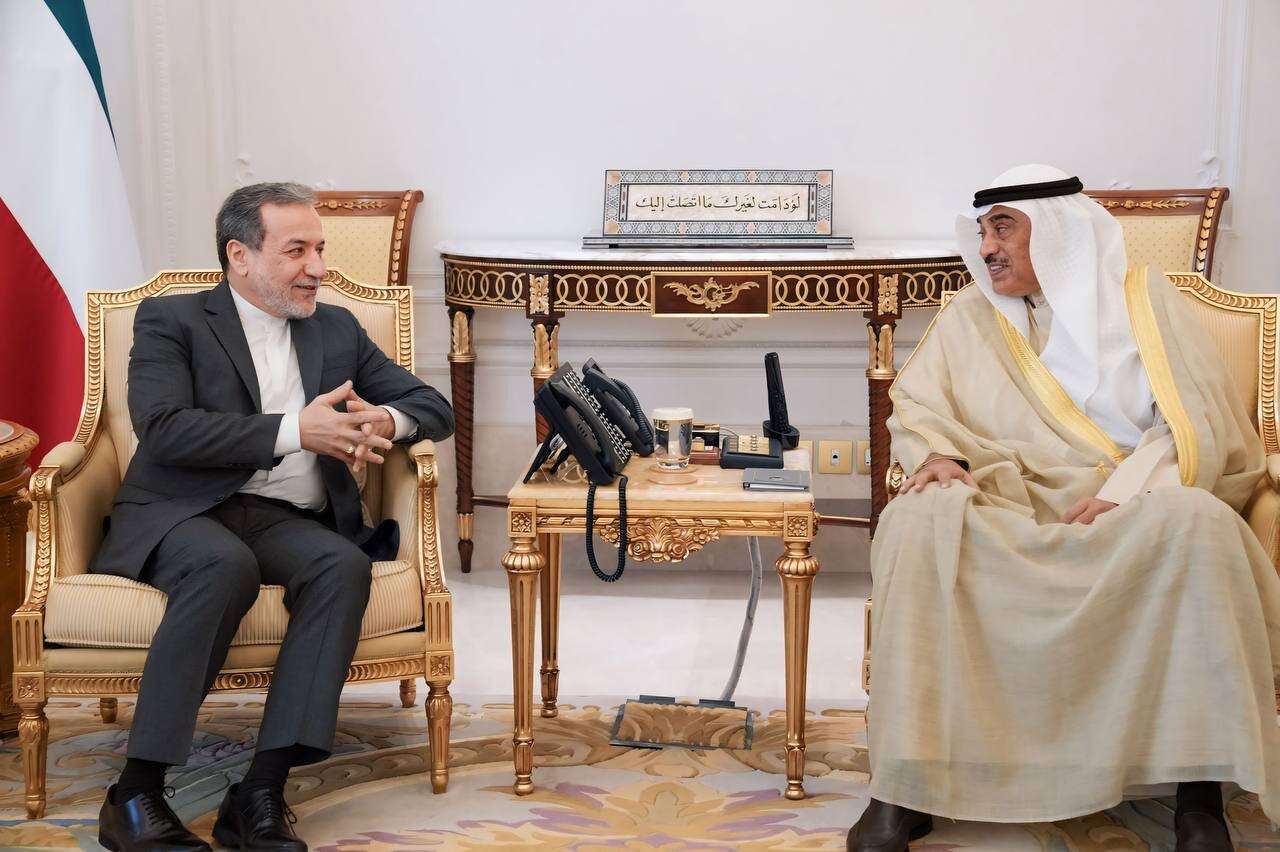Iran's good neighborliness policy to continue under Pezeshkian’s administration: FM

TEHRAN – Iranian foreign minister says the policy of good neighborliness that had been championed by Iran’s late President Ebrahim Raisi will continue under the leadership of current President Masoud Pezeshkian.
Abbas Araqchi made the remarks in a meeting with the Kuwaiti Crown Prince, Emir Sheikh Meshal Sheikh Sabah Al Khalid Al Sabah on Tuesday. This policy emphasizes diplomatic engagement and cooperation with neighboring countries as a means to foster stability.
During this meeting, Araqchi delivered a message from President Pezeshkian to the Kuwaiti leader, reaffirming Iran’s commitment to regional security and cooperation.
Araqchi noted that the situation in Gaza and Lebanon has reached a critical point, calling for decisive international action. He reiterated Iran's support for regional peace efforts and condemned the Israeli regime’s military actions, which he described as a deliberate attempt to spread conflict across the region.
Araqchi, who is on a regional tour, arrived in the Bahraini capital, Manama on Monday and then left for Kuwait.
During his tour, Araqchi emphasized that Iran's stance is clear: Israel’s expansionist policies and military aggression are destabilizing the region, and efforts must be made to prevent the conflict from spreading.
In response to escalating tensions, Araqchi also revealed that Iran is closely monitoring the movements of U.S. military bases in the region, including those in Kuwait. He stated that Iran is sharing this intelligence with Kuwaiti officials, ensuring transparency and cooperation in matters of security. Araqchi further confirmed that Iran is tracking U.S. activities in Jordan and sharing relevant information with the Jordanian government.
In addition to addressing the pressing issue of war, Araqchi touched upon economic and trade relations with regional countries, particularly Kuwait. While the primary focus of his diplomatic visit was to halt the violence in the region, he expressed Iran’s interest in strengthening economic ties. He noted that although differences exist between Iran and some of its neighbors, dialogue remains the preferred path for resolving such issues.
On the topic of Israel, Araqchi warned that any attack on Iran, especially on its nuclear facilities, would provoke a swift and forceful response. He described such actions as violations of international law, emphasizing that Iran remains ready to defend itself against any threats to its sovereignty.
The Iranian foreign minister condemned the Israeli regime’s actions as war crimes, facilitated by U.S. and European support, and underscored the international community’s responsibility to hold Israel accountable.
Araqchi concluded by affirming that Iran will continue to pursue diplomatic avenues for peace, while maintaining vigilance over military developments in the region. He stressed that Tehran’s ultimate goal is to ensure long-term peace and stability, both through bilateral talks with countries like Japan and Kuwait and through broader international cooperation aimed at de-escalating conflicts across West Asia.
Tehran, Tokyo discuss nurturing bilateral relationship
In a significant phone conversation on Tuesday, Araqchi and Takeshi Iwaya, Japan’s newly appointed Foreign Minister, engaged in discussions regarding pressing regional developments.
The call, aimed at strengthening diplomatic ties, also addressed the escalating tensions in West Asia, particularly the critical situations in Gaza and Lebanon.
Araqchi opened the conversation by congratulating Iwaya on his recent appointment as Japan’s top diplomat, reaffirming Iran’s commitment to the long-standing and historically strong relations between Tehran and Tokyo. Both ministers highlighted the importance of nurturing this bilateral relationship, which they agreed is essential to regional peace and stability.
A substantial portion of the discussion centered on the growing security concerns in West Asia, with particular emphasis on the ongoing violence in Gaza and Lebanon. The two diplomats stressed the urgency of international intervention to prevent further instability.
They called for an immediate ceasefire in both conflict zones and advocated for the swift delivery of humanitarian aid to displaced populations affected by the violence.
Leave a Comment